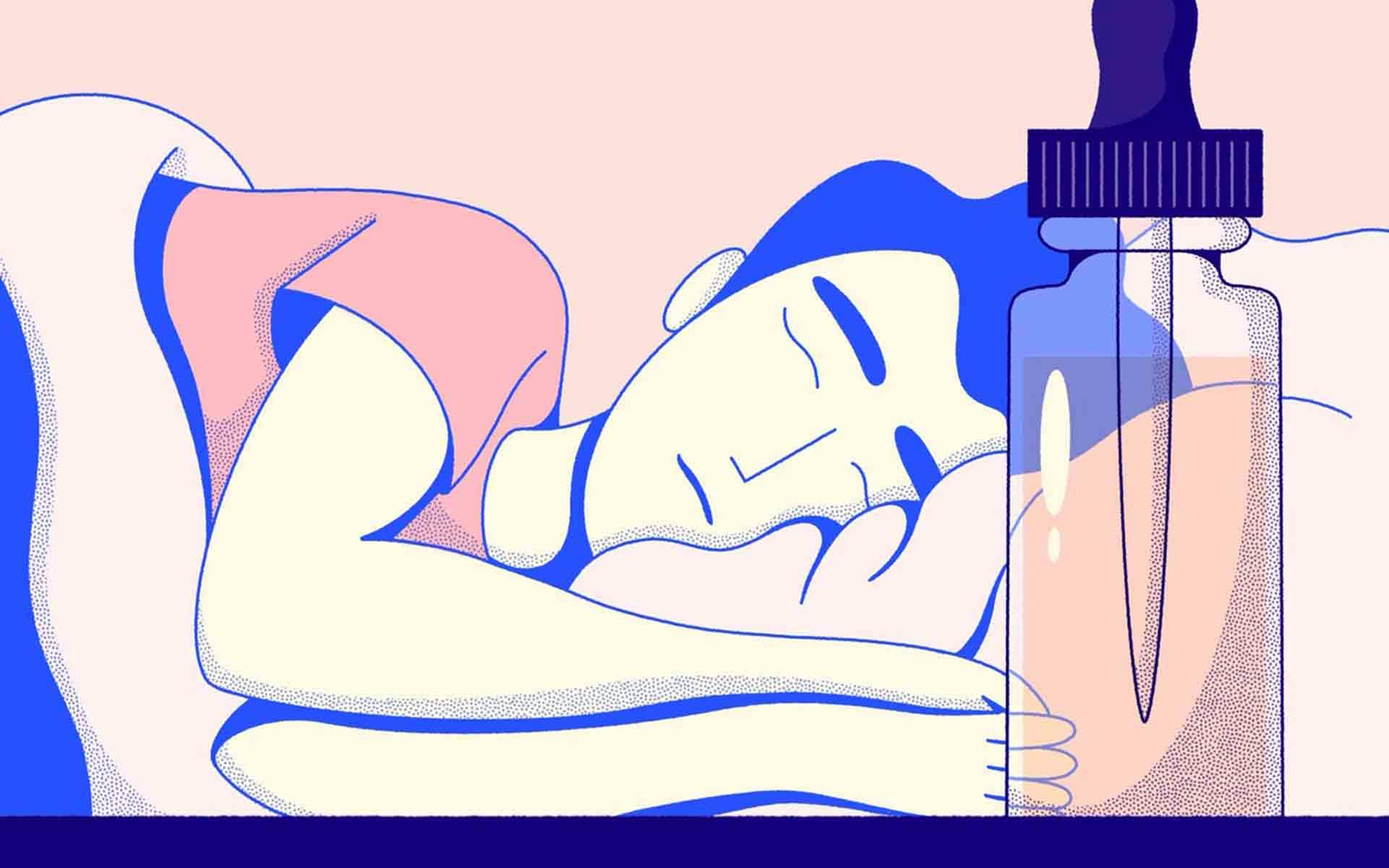Meet Canada’s newest favourite cannabinoid—CBN. Short for Cannabinol, CBN has been popping up in products in gummies, vapes, beverages, and infused oils.
While many of the products are marketed as a natural sleep aid, the jury is still out on whether or not CBN is truly sedating. Regardless, a new flood of cannabinoid-specific products have hit the Canadian market.
Consumers are seeking out new cannabinoids
With seven products on the market that feature the cannabinoid, there is little doubt that CBN is having a hot minute in Canada.
But what is driving this trend?
Consumers are the reason for CBN’s popularity, according to Dr. Chris Talpas, VP of quality and scientific affairs at MediPharm Labs. “I think it is driven by an evolution in consumers’ knowledge about cannabinoids,” he tells Leafly.
“THC was the initial cannabinoid everyone knew about and then CBD exploded, now consumers are interested in exploring other cannabinoids that can be present in the plant.”
How is it made?
CBN is less psychoactive than THC, binding to the CB1 and CB2 receptors with about a quarter of the potency. “This cannabinoid is usually only present in small amounts in cannabis flower,” explains Dr. Talpas.
Since THC degrades into CBN over time, a manufacturing process is used to speed up the natural oxidation of the cannabinoid to make CBN.

“MediPharm Labs uses a proprietary manufacturing process carefully controlling reaction time and temperature to enhance CBN production,” says Dr. Talpas.
He explains that material then goes through purification until it reaches the desired properties to make the final distillate. That distillate can then be formulated into an MCT oil or vape formulations.
MediPharm uses this process to make the rare cannabinoid for their products, as well as supplying CBN material for other products on the market.
CBN and a good nights sleep
“CBN is a great new addition to the Canadian market as it appeals to a wider demographic of consumers,” shares Tara Rozalowsky, VP of beverages and edibles at Canopy Growth.
“As the pandemic has accelerated issues for many Canadians, now is a perfect time to launch our CBN gummy, which is designed with consumers’ nighttime routines in mind.”
Not all CBN products claim to help with sleep, though at least half are being marketed as a natural sleep aid.
There isn’t much research on cannabis and sleep, and even less on CBN specifically. However, there is preliminary evidence that there might be a connection between CBN and sleep.
“While not as well studied as THC or CBD, a 2017 review article indicated CBN can be sedative and anticonvulsant in animal and human studies,” explains Dr. Talpas, who has over 24 years of experience in the biopharmaceutical field.
“CBN has also demonstrated significant properties related to anti-inflammatory, antibiotic, and anti-MRSA activity.”
Does it actually work?
One of the authors of Cannabis Pharmacology: The Usual Suspects and a Few Promising Leads, Dr. Ethan Russo, previously told Leafly in 2019 that CBN hasn’t shown to be effective all on its own.
The sedating effects of aged cannabis are often misattributed to CBN, according to Dr. Russo. He shared that old cannabis tends to be sedating due to a loss of monoterpenoids and retention of sesquiterpenoids, which have a soporific (or drowsy) effect.
“Cannabis isn’t such a successful sleep aid because it’s wildly sedating,” says Dr. Russo. “Rather, it treats underlying conditions that are keeping people awake.”
“The best-known way to use cannabis for sleep is to combine THC with other sedating components, like the terpenes myrcene and linalool.”

More research, less THC
“I would love to see more targeted CBN offerings,” shares Ashleigh Brown, CEO and founder of medical cannabis advocacy group SheCann. While the current product selection is a start, Brown tells Leafly she wants to see more research, as well as different ratios of THC to CBN.
According to Brown, most of the SheCann community is seeking out less THC, or an alternative to THC altogether. “The current products are typically 2:1 THC to CBN. Patients are reporting benefits for sleep, but are those effects related to increased THC consumption, or the CBN itself?” questions Brown.
“We definitely need more research on this one and more [product] options. Maybe CBN is the answer for helping patients with sleep. Or perhaps it’s an entirely different combination of cannabinoids altogether.”








